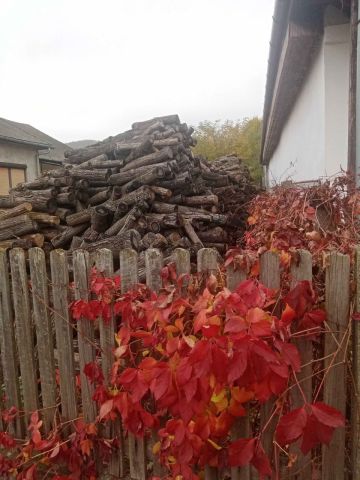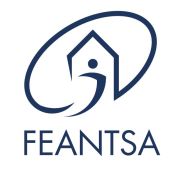
In central and eastern Europe, many of the poorest households heat their home with solid fuels – often with obsolete devices – and can hardly access funding for renovation. The heat transition of vulnerable households is therefore a key challenge. This lab first explores this challenge through speeches from experts. Participants will then co-create local heat transition plans based on case studies of vulnerable communities, focusing on technical, social and financial aspects of the transition.
- Territorial | Rural | Energy | Climate and environment | Housing | Social inclusion and Equality | Investment and Finances
- Code: 10PL23342
Speakers


Roberto Patrascoiu

Aranka Rostás
Moderator

Anna Bajomi
Practical information
- When
-
Tue 10/10/2023, 16:30 - 18:00 CET
- Type of partnership
- NONE
- Format
- Participatory/Political lab
- Theme
-
Local energy shift for security and sustainability
- Language
- English
- Website
-
http://www.feantsa.org
- Social media
-
FEANTSA/

Partner

European Federation of National Organisations Working with the Homeless
Documents
Reporting
Session summary
"Firewood and coal use a predominant form of heating among the poorest households in Central and Eastern Europe"
In a remote community I saw situations where for example a mother needs to go to the neighbor who can afford to buy firewood to warm up there for 2-3 hours. In 5 days we built 10 new homes for these families with efficient centralized biomass heaters "
From October 9th to 12th, 2023, the European Week of Regions and Cities (#EURegionsWeek) took place in Brussels. This is the largest European Union regional policy event, where local governments and non-governmental organisations present their ideas and achievements through conferences, exhibitions, and events. A significant portion of the activities focused on energy transition.
On October 10th, Anna Zsófia Bajomi from FEANTSA (European Federation of National Organizations Working with Homeless People) organised a panel and workshop, “Clean and affordable heat for all: heat transition for vulnerable solid fuel users”, dedicated to options for implementing solutions for district heating in rural areas. Roberto Patrascoiu (Habitat for Humanity Romania) presented an example of a community from Romania, and Aranka Rostás (Lightbringers Association) from a village in Hungary where access to utilities such as electricity and running water is challenging for the poorest households, especially for the Roma community. Many households rely entirely or partly on firewood for heating. Jan Frankowski, in turn, cited an example from a remote village in northern Poland visited during this year's field research (within the project Energy poverty of women in Poland). The village is grappling with a rapidly ageing local community, the deteriorating technical condition of pre-German and post-state-collective farm buildings heated with coal or wood, and low incomes, often from work on the grey market.
Subsequently, with the workshop participants, discussions revolved around possible technical solutions for Hungarian and Polish rural areas.
Among the solutions discussed for Poland were:
• utilising the similarity of buildings and the potential for scalable partial renovations (e.g., window/roof replacements)
• public-private partnerships with nearby biogas plant
• investment in a shared boiler room and a small district heating system to replace individual heat sources
• expansion of electricity distribution networks with a focus on electrification capabilities.
Administrative-housing solutions proposed by participants included:
• creating a comprehensive renovation plan for such neighbourhoods
• involving Green Ambassadors as advisors to women village leaders, who would cooperate with local governments and energy efficiency financing institutions
• promoting the concept of "second homes" that migrated to maintain the housing stock over the next 10-20 years.
• relocating residents in a challenging situation to well-heated communal buildings within the municipality with better access to everyday services.
The solutions for Hungary were:
• generating electricity from the river nearby
• utilizing geothermal energy for heating
• assessing whether the unfit housing stock of the village should be renovated, or new constructions make more sense economically.
• Efficient and clean use of biomass heating
• Clarify tenures among families in the Roma settlement, if necessary.
However, financing the interventions appeared as a barrier that is a challenge to overcome:
- Renovation and housing support schemes exclude low-income and vulnerable households in Hungary.
- There is a lack of large-scale funding sources to carry out big infrastructural investments in disadvantaged regions that would facilitate the green heat transition.
The workshop was attended by individuals from various countries representing European Union institutions, think tanks, business/industry representatives, and the European Poverty Advisory Hub. This exercise was aimed to present the perspective of people heating their homes with solid fuels in Central and Eastern European countries and their challenges to the specialists working on energy efficiency solutions in Brussels.
Quotes
-
Every third household in Poland uses coal or wood to heat a home. People who use solid fuels experience many inconveniences, such as an additional one hour a day to provide and keep heating, indoor and outdoor air pollution, as well as health problems. It
In a remote community, I saw situations where for example a mother needs to go to the neighbor who can afford to buy firewood to warm up there for 2-3 hours. In 5 days we built 10 new homes for these families with efficient centralized biomass heaters
In winter many people are unable to heat their uninsulated homes as have no wood or adequate heating devices. They fall ill in winter and cannot lead a proper human life. This is compounded by electricity poverty as still in 2023 people live in darkness.



